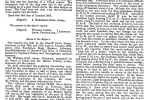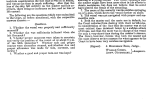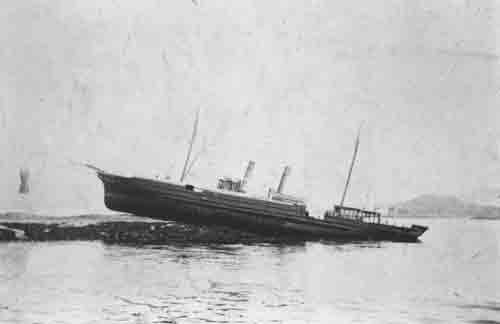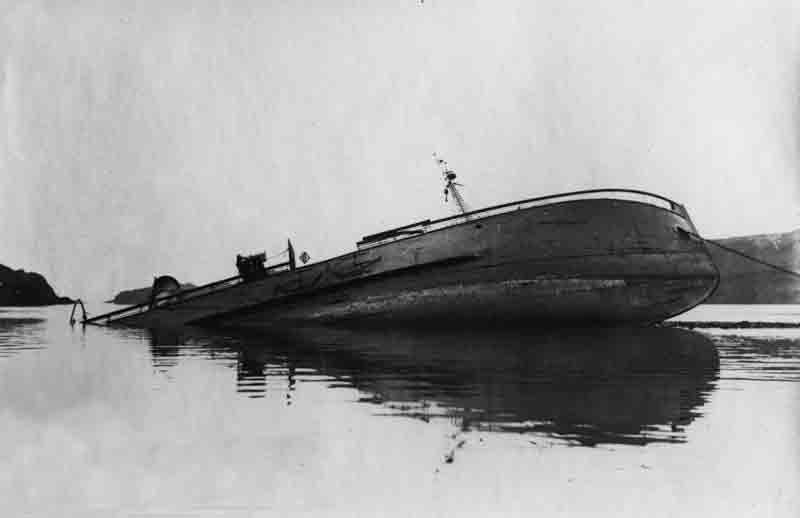The wooden full rigged sailing ship Arklow was launched from the Newport, Nova Scotia yard of N Moscher in 1879. She measured 214.0′ x 40.0′ x 13.6′ and her tonnage was 1504 gross tons, 1474 net tons. She was registered in Winsdor Nova Scotia where she was owned by Mr R Currie.
In December 1894, the Arklow was on the Clyde. Having offloaded a cargo of timber at Greenock she took on 500 tons of rubbish ballast for her return trip to her home port of Windsor, Nova Scotia. She was commanded by Mr T D Moscher and who had a crew of seventeen under his command. Around 8pm on the 16th she cast off from the Greenock quayside and was taken in tow by the tug Flying Phantom. The two vessels headed down the channel until they passed Little Cumbrae where the weather began to deteriorate. As they reached Ardrossan it was decided to turn back and await better weather before proceeding. They anchored in Rothesay Bay and waited for the rest of the night. At 10am on the 17th the two ships set out again and reached Ailsa Craig where the tug cast off the line and headed back up river. Within a few hours the wind backed again forcing the Arklow to head back once more and she was picked up by the Flying Phantom and returned to Rothesay Bay.
She sheltered in Rothesay Bay until the morning of 20th when the captain decided to try once again to reach open sea. This time he set out under sail but again the variable weather and wind was to make this impossible. When they reached the south end of Arran the wind died completely before a breeze started to rise from the south. The air pressure was dropping fast – a sure sign that bad weather was on the way. This time Captain Moscher decided to head for Lamlash Bay but, with the wind speed rising quickly, this proved impossible and they headed, once more, for Rothesay. It is at this point that the final mistakes were made. In evidence at the subsequent enquiry the captain stated they headed north until they could see Cumbrae Light and steered a course to pass between Cumbrae and Garroch Head. However it would appear that in actual fact the course was set when the ship was much closer to Lamlash and that, as they headed north the ship was steadily moving off course to the west of their intended route. So, at around 11:45pm with the captain ill below decks, the first mate in command and an elderly crew member at the wheel, the Cumbrae Light disappeared from view and shortly after the ship ran hard aground in Scalpsie Bay, Bute. The ship wasn’t damaged to any great extent and the crew were safe remaining aboard.
An attempt was made to “sail the vessel off” on the next high tide, but the wind strength proved insufficient. An offer of a tow from the tug Champion was refused, as Captain Moscher considered the tug to be underpowered and was confident that other assistance would soon be offered. Unfortunately no further assistance was offered or secured and the fate of the Arklow was finally sealed on the night of Friday 22nd December when a hurricane swept across Scotland wreaking havoc on land and sea. The Arklow was severely damaged and was eventually left to rot in Scalpsie Bay after most of her fittings had been removed.
































